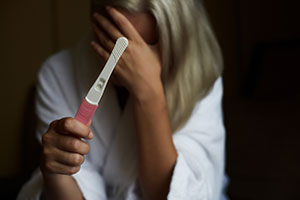Criminal accusations against Skylar Richardson have made headlines, but news coverage has focused on the sensational and melodramatic aspects of the story. When the case finally goes to trial, crucial testimony from expert witnesses probably won’t make it into the tabloids, but might make the difference between a conviction and acquittal.
Criminal Charges
The prosecution alleges that Brooke Skylar Richardson, at the age of 18 and planning to enter college, murdered her newborn baby and buried the body in her yard. The defense contends that the baby was stillborn and that Richardson, who had concealed her pregnancy, buried the stillborn baby because she didn’t know what else to do.
The prosecution is relying on evidence that Richardson was extremely upset when her doctor told her she was pregnant, and that she ignored advice to obtain an ultrasound and prenatal care. The prosecutor characterizes Richardson as doing nothing to prepare for the baby’s birth, which it views as evidence that she never intended to allow the child to live. Richardson’s actions are also consistent with those of a young woman in denial, a theory that seems at least as plausible as the prosecution’s.
When Richardson saw her doctor again three months later, she was no longer pregnant. She told her doctor that she had given birth to a dead baby girl in the middle of the night and buried the corpse. Whether the doctor violated doctor-patient privilege by disclosing that communication to the police is one of the issues in the case.
John Faine, the lead detective who handled the murder investigation for the Warren County, Ohio Sheriff’s Office was demoted shortly before the scheduled trial. Faine, who is married to a Warren County judge, was accused of carrying on an affair while on duty with a woman he met on Snapchat.
The detective’s alleged misconduct fueled defense concerns about how the police mishandled the investigation. The trial was postponed in the wake of Faine’s demotion.
The Privilege Question
The prosecution wants Richardson’s OB-GYN to testify as a fact witness rather than an expert witness. The prosecution hopes to elicit testimony about the statements that Richardson made to her doctor, both before and after her pregnancy ended.
The trial judge agreed to allow some of Richardson’s medical records, as well as the doctor’s testimony, to be admitted as evidence. That prompted an appeal that again delayed the trial.
Statements to a treating physician are usually privileged when they are made to further the patient’s treatment. Ohio law broadly protects statements made to a physician in a doctor-patient relationship.
The privilege is intended to assure the kind of candor that promotes good health. Patients who fear that their statements will be revealed may conceal critical information from their doctors for fear that their statements will become public knowledge. That fear may inhibit medical treatment if doctors are not told facts that might affect a diagnosis or treatment.
Bearing in mind the purpose of the privilege, the appellate court might draw a distinction between statements Richardson made to her OB/GYN during her pregnancy in the context of obtaining a diagnosis or treatment, and statements about burying her stillborn baby, which arguably had no relationship to medical treatment. How the court is likely to resolve the issue will probably not be known for several months.
Forensic Expert Criticized
Prosecutors, perhaps with the intent of inflaming the public and influencing the jury pool, have spent months referring to Richardson’s child as “Baby Jane Doe.” Naming the baby creates the impression that the baby was born alive, a disputed fact that prosecutors have yet to prove in court.
Richardson’s attorneys say that Richardson was looking forward to her child’s birth, and had already selected the name Annabelle. Richardson’s attorneys blame the prosecution’s forensic anthropologist for fueling public outrage by claiming that the baby had been burned before being buried. After a second expert found no evidence that the body had been burned, the prosecution quietly retracted the claim made by its forensic anthropologist — but not until after a grand jury indicted Richardson, and after the false accusation tainted the public’s view of the case.
The defense will likely use the forensic anthropologist’s mistake to cast doubt on the reliability of the prosecution’s experts. In addition, investigators originally concluded that Richardson had buried her stillborn baby, but later relied on expert opinions that the baby had been born alive. The defense will likely use that uncertainty to suggest the existence of reasonable doubt.
Richardson’s case underscores the critical need for experts to be certain in their opinions. Richardson may find it impossible to have a fair trial because of the publicity surrounding a horrific but false claim about her actions. If Richardson is guilty, the expert’s mistaken opinion might make it more difficult to secure a conviction.




